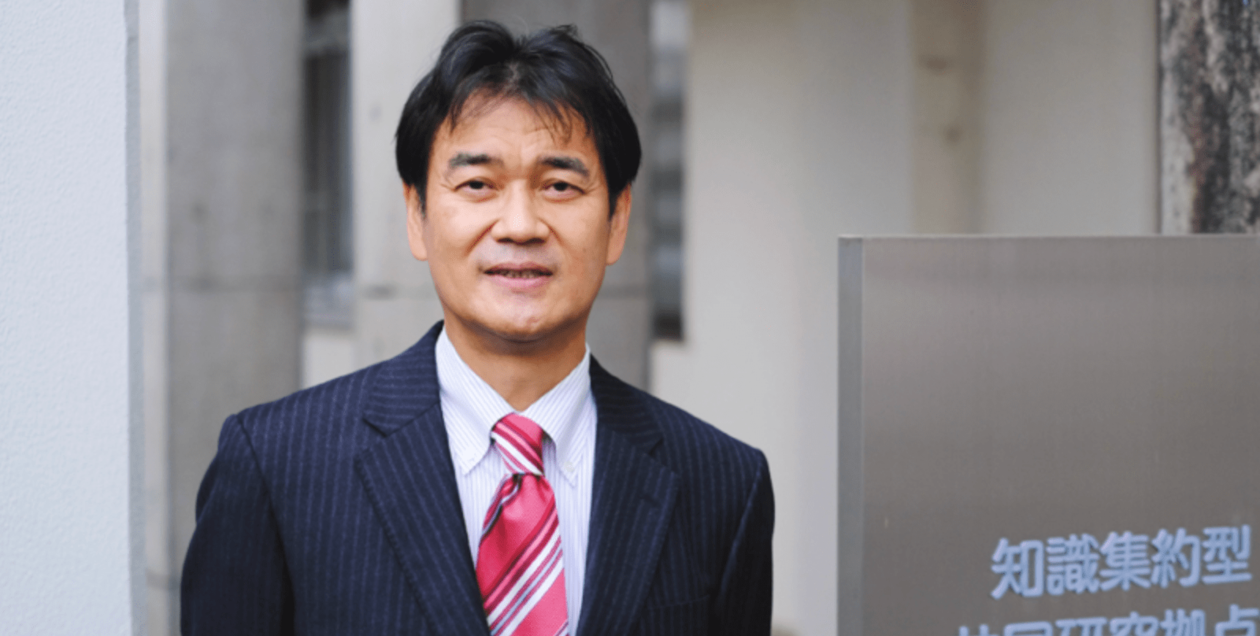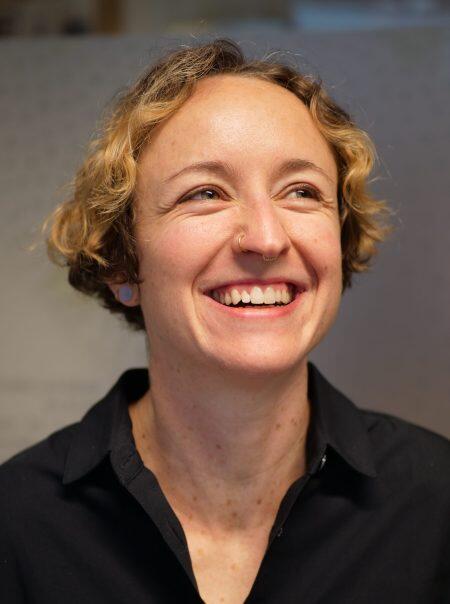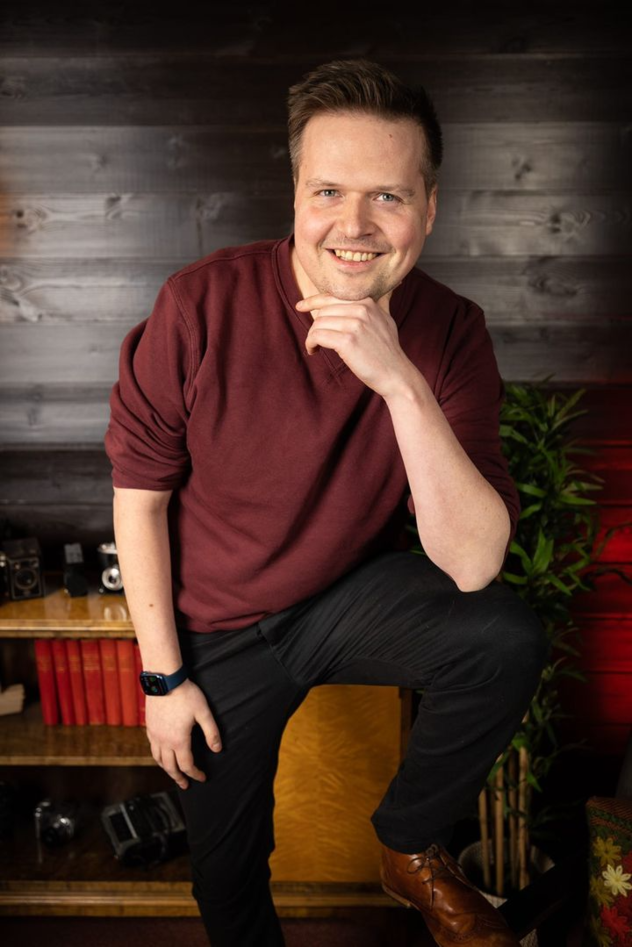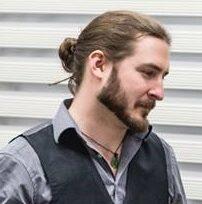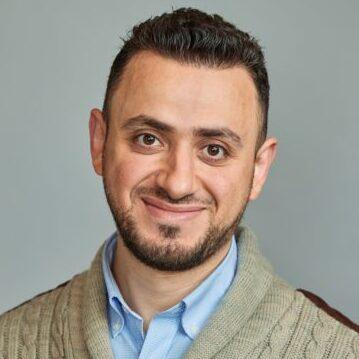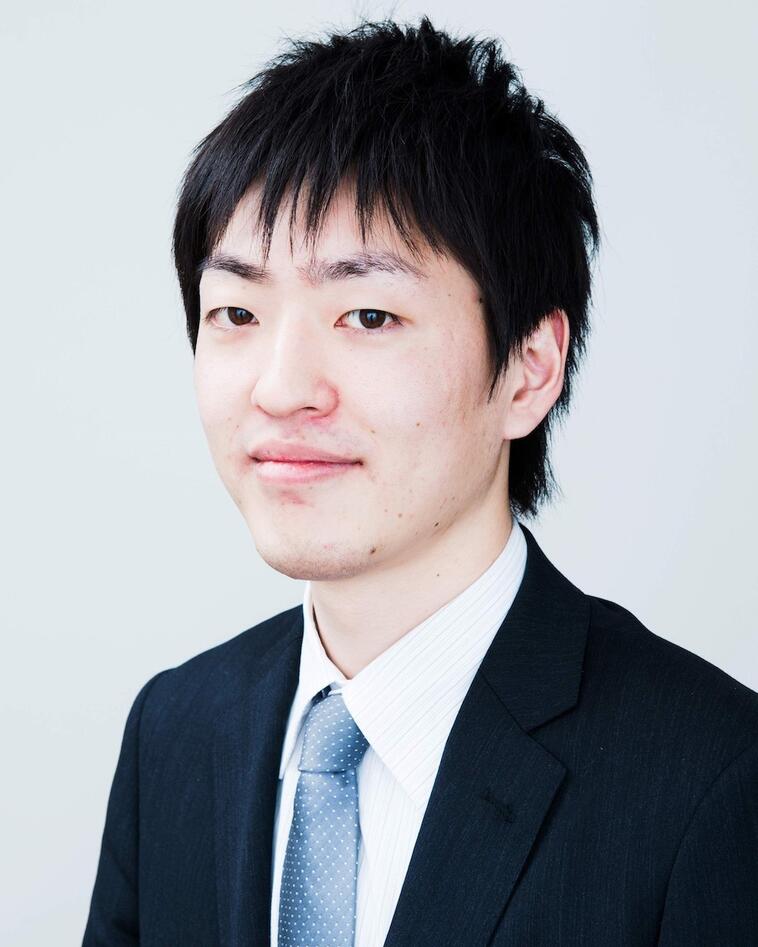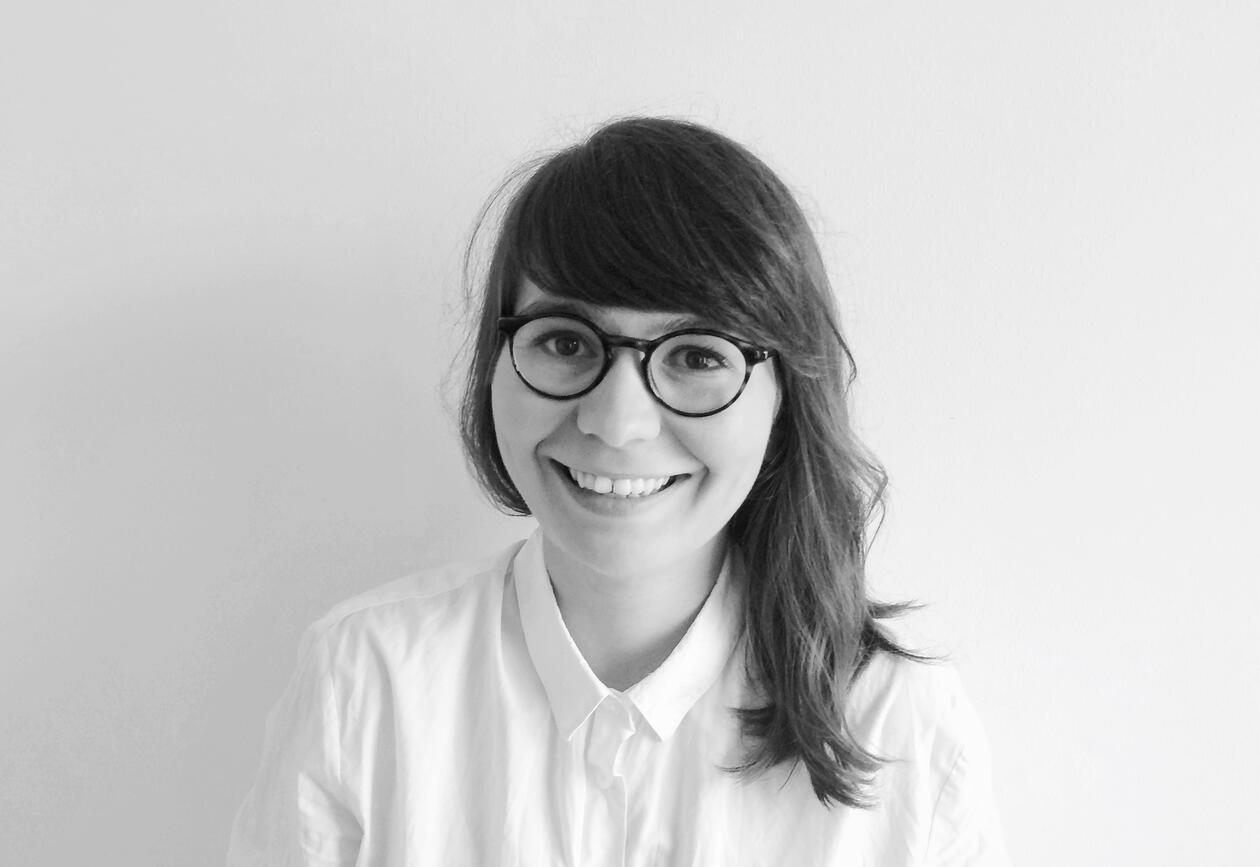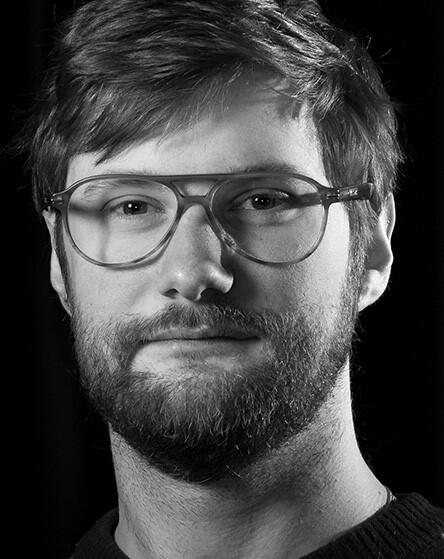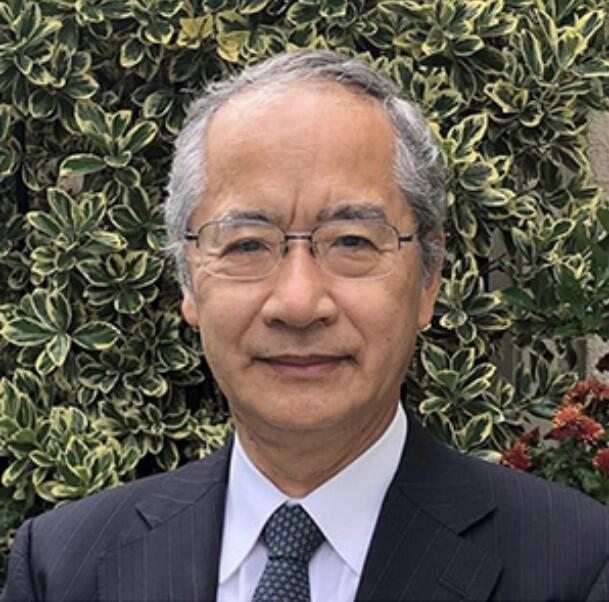Innovative Human-Computer Interaction (HCI): Eight Ways to Advance Interactive Technology | 革新的なHCI: インタラクティブテクノロジーを進歩させる8つの方法
At the University of Bergen, the HCI research group invites you to a seminar addressing innovative HCI, with presentations from research and industry leaders invited from Norway, Sweden, Germany, Switzerland, and Japan.

Main content
Japan-Norway Encounters 日本とノルウェーの出会い 
Human-Computer Interaction (HCI) is a subject with implications for research and development (R&D) in areas such as education, health, engineering, architecture, and media. While innovation is key in advancing HCI itself, innovation is also needed to advance research and industry in these areas. At the University of Bergen, the HCI research group invites you to a seminar which addresses innovative HCI. There will be presentations from eight research and industry leaders from Norway, Sweden, Germany, Switzerland, and Japan. We welcome students, researchers, innovators, and industry representatives to participate in our two-day seminar. On the second day there will be a panel discussion.
- Dates: Mon 2 and Tue 3 Oct 2023
- Venue: University of Bergen, downtown campus (Nygårdsgaten 5 and Christies gate 12)
- Format: In-Person (no streaming), Drop-In (no registration needed), coffee/tea will be served in the breaks
- Organisers: Morten Fjeld with Frode Guribye, Miroslav Bachinski, Kazuyuki Fujita, and Thomas Ågotnes
MONDAY 2nd October 2023
TUESDAY 3rd October 2023 12:15 – 13:40: Smart Workspaces
14:00 – 16:30: From Research to Innovation
Panel Introductory Lecture: What is the magic behind Swiss innovation?
|
Platina sponsors:
- Department of Information Science and Media Studies, University of Bergen
- MediaFutures at the Department of Information Science and Media Studies, University of Bergen
- The Research Council of Norway, RCN
- Recorded Future, Sweden
- Volvo Car Corporation, Sweden
Gold sponsors:
- Department of Psychosocial Science, University of Bergen
- Chiba University, Japan
- Tohoku University, Japan
- Japan Society for the Promotion of Science, JSPS, Japan
SPEAKERS and ABSTRACTS
Masahiro Takei, Chiba University, Japan
Talk title: From Biomedical Tomography to Medical Imaging
At the Takei Laboratory, we apply the visualization technology of electrical tomography (impedance tomography (EIT) & capacitance tomography (ECT)) to "visualize" objects that were considered invisible in the past. We aim to create innovation in research and industry. Based on this EIT & ECT, we are divided into three units: cells, living organisms, and multiphase flow, and we are expanding into each research and industrial field. Researchers with mechanical, electricity, biology, and informatics backgrounds gathered to promote the research.
Electrical Impedance Tomography (EIT) and Electrical Capacitance Tomography (ECT) measure electrical quantities such as impedance and capacitance in an ultra-high-speed, multi-dimensional manner. It is a technology that can visualize in 4D and real-time. Compared to conventional computed tomography (CT) methods such as X-rays and gamma rays, EIT and ECT have high temporal resolution and can be visualized and measured non-invasively and low-cost. It is a technology that is expected to be used for factories, power plants, and chemical plant measurements.
In our recent research, we have been working to visualize the flow of fluids such as gases and liquids inside materials at ultra-high speed and in multiple dimensions using electro-tomography. The targets range from large-scale objects such as rotating machinery and plants to microscopic intravital fluids such as blood vessels and cells.
Utilizing this technology, we are developing a medical device that can detect lymphedema symptoms easily and at an early stage. It is possible to measure fluid and protein levels in the early stages of the disease by simply wearing a wearable sensor and "visualizing" diagnostic information on a smartphone or other dedicated device. In that case, it will be much easier and extremely minimally invasive than tests that are performed in hospitals and can be performed at home.
Bio: Masahiro Takei received the Ph.D. degree from Waseda University, Tokyo, Japan, in 1995. In 2007, he was a Guest Researcher with the University of Leeds, U.K. He is currently a Professor with the Graduate School of Science and Engineering, Chiba University, Chiba, Japan. His research interests include electrical capacitance tomography (ECT) and electrical impedance tomography (EIT) for applications in medical and industrial-two phase flow. He is also a Vice President for Research and Academia – Industry Collaboration at Chiba University.
Laura Anna Garrison, Informatics, VisGroup, Univeristy of Bergen, Norway
Talk title: Exploring engagement and empathy in data-driven (bio)medical stories
Data storytelling has become mainstream, permeating key agendas of companies in nearly all sectors and visible every day we open our favorite news or social media apps. Storytelling is an age-old way to make sense of complex information and events, helping to parse this information into a personally relevant, memorable, and engaging narrative. In medicine, stories can help to reveal the human behind the data point to empower patients, encourage empathy in policymakers, and help families better navigate a loved one's illness. Many pieces come together to craft what many would call a “good story” In this talk, I will discuss a subset of current approaches and challenges in narrative medical visualization, along with some of the ethical considerations for communicating complex, sensitive health information to audiences with varied backgrounds.
Bio: My research focuses on human factors in visualization, with a primary emphasis on the health and science domains. Specifically, I am interested in understanding how interaction, aesthetics, and storytelling strategies can impact the analysis and communication of complex information to different audiences and user groups, and the ethical implications in each of these choices. I am also a professional biomedical artist, and worked for several years as an artist and content director in medical education start-ups in Silicon Valley, Chicago, and New York City. I love combining art, science, and technology to help people understand and engage with science, especially in the areas of biology and medicine. More recently, I’ve become interested in developing visualizations that are more accessible, i.e., usable and understandable, for different segments of the population.
Tor Gjøsæter, Ilder AS, Bergen, Norway
Talk title: Eliciting and Managing Postoperative Pain Through Tangible User Interaction
In an era where digital health solutions are often criticized for their lack of human touch, the talk explores the innovative use of a tangible device named 'GRASP' to understand, quantify, and manage postoperative pain. Rooted in years of interdisciplinary research, GRASP shifts from traditional methods of pain assessment to a more human-centric, tangible approach. This hand-held device, reminiscent of a natural stone, employs sensitive force sensors and real-time data transmission to capture subjective experiences of pain, offering a more immediate and intuitive means for patients to communicate their discomfort.
The talk will delve into the genesis of the project, from its early conceptualization, to its validation and further development in collaboration with the University of Bergen. It will highlight how the GRASP system integrates principles of affective interaction, following scholarly works that have paved the way in the field. Special emphasis will be given to the device's applications in postoperative settings, where capturing the nuanced experiences of pain remains a formidable challenge.
The goal is not just to herald a technological advancement but to fundamentally question and potentially redefine how we understand and interact with postoperative pain. The presentation will serve as a critical discussion point for clinicians, researchers, designers, and policymakers interested in innovative and empathetic healthcare solutions.
Bio: Dr. Tor Gjøsæter, with a PhD in Information Science from the University of Bergen, specializes in Human-Computer Interaction and mobile augmented reality. Currently serving as the Chief Experience Officer at Ilder, he focuses on design, front-end development, and the human aspects of computer interaction. Parallelly, Dr. Gjøsæter is the founder of Grasp AS, a startup aimed at leveraging technology for healthcare monitoring applications. He has also contributed to academic research, with publications in journals and conferences such as TEI and NordiCHI. Combining practical experience with research, Dr. Gjøsæter aims to bridge the gap between academic inquiry and real-world applications.
Matthias Hoppe, Ludwig Maximilian University of Munich, Germany
Talk title: Perception Design: Beyond Realism in Virtual Reality (and what to measure)
Current research and development of Virtual Reality (VR) technology and experiences mainly focus on improving the overall appearance of the virtual world. At the current state, we try to replicate this reality in the finest detail, thereby creating a Doppelgänger for it.However, VR is a tool that lets us create and control every aspect of our environment and ourselves.How can we utilise the strengths of VR to create and deviate from reality?VR is a new medium, and it evolves like mediums before. Paintings started with simplistic cave drawings conveying information, and these evolved to be more detailed. Finally, however, there was a breaking point when artists became interested in more abstract forms of painting. VR is currently still in a phase where reality is the focus of evolving the medium. However, being realistic is optional. How can we measure not only the quality of but also the response to these experiences beyond questionnaires? What is there beyond the sense of presence and how can we deploy such measures in the context of HCI?
Bio: Matthias Hoppe (researcher, and doctoral student at LMU Munich) has an MSc in Software Engineering from the University of Stuttgart. In his research, he focuses on Mixed Reality as a new medium and investigates the importance of (haptic) feedback in Virtual Reality. His expertise is in software development and multimodal interface design for mixed reality applications. He has prototyped various mixed reality systems and has been instrumental in creating the DroneOS, which is the basis for further prototypes (e.g. haptic feedback, extending the viewpoint for human vision).
Mohammad Khalil, SLATE, Univeristy of Bergen, Norway
Talk title: How will we Interact with Tomorrow’s Educational Content: The Case of Remote Intelligent labs in Higher Education
Laboratory experimentation is one of the key elements of higher scientific education. In this talk, I will present our project: Remote Intelligent Access to Labs in Higher Education (RIALHE). RIALHE is an ambitious project involving three European partners aimed at promoting online access to state-of-the-art laboratory simulations and their environments. The project aims to enable live observations and facilitate collaborative interactions between students and lab scientists via the usage of learning analytics, human-computer interaction, and artificial intelligence video segmentation. Our project’s idea is timely as it 1) creates opportunities for dialogue between European laboratories of excellence, university lecturers and their students; 2) identifies new ways to introduce state-of-the-art protocols in the preparation of future lab experts; and 3) encourages students to seamlessly collaborate in a more creative style than traditional.
Bio: Mohammad Khalil is a senior researcher at the Centre for the Science of Learning & Technology (SLATE) and the project leader of the European Erasmus+ project Remote Intelligent Access to Labs in Higher Education (RIALHE). Khalil has a Ph.D. in Engineering Sciences with distinction from Graz University of Technology. He worked as a Postdoc at Delft University of Technology in Technology Enhanced Learning. Khalil is the PI of three Peder Sather projects in joint collaboration with University of California Berkeley on Learning Analytics and Recommendation systems in higher education. He has also been involved in several European projects: Scaling up Educational Innovation in Schools (SEIS), Open Educational Resources in Computational Biomedicine (OERCompBiomed), and European Network for Virtual lab & Interactive SImulated ONline learning 2027 (ENVISION2027). Khalil is currently an associate editor of the International Journal of Emerging Technologies in Learning (iJET) and served as a guest editor at the Journal of Computing in Higher Education, Journal of Learning Analytics, and the British Journal of Educational Technology. He has more than 80 publications on ICT & learning. His key research interests include AI in Education, Learning Analytics, and Privacy and Ethics.
Kazuyuki Fujita, Tohoku University, Japan
Talk title: Human-Workspace Interaction: Supporting our activities withinteractive physical/virtual spaces
The talk focuses on "workspaces" that surround human activities, andintroduces a new research domain called Human-Workspace Interaction(HWI), which supports various human activities through interaction with the computerized or virtualized workspaces and their components. The talk also includes the introduction of several recent research projects related to HWI.
Bio: Kazuyuki FUJITA is an Assistant Professor of Research Institute of Electrical Communication (RIEC) at Tohoku University. He received his Ph.D. in Information Science and Technology from Osaka University in 2013. He worked for ITOKI, an office space design company, and was engaged in research and development on future offices for 2013-2018. In 2023, has been granted the title of Prominent Research Fellow at Tohoku University. His research interests include human-computer interaction and virtual reality, and especially Human-Workspace Interaction.
Ruxandra Teodoru, Recorded Future, Sweden
Talk title: Empowering Cybersecurity through Innovative HCI: From Research to Action
A journey into the world of innovative interaction with threat intelligence in the cybersecurity landscape. The talk will highlight insights into how we harness innovation to empower our clients with actionable threat intelligence. Join me as we explore the intersection of emerging technology, the role of AI and large language models, and the art of navigating complex graphs. Discover how our approach to interaction design is revolutionising cybersecurity, with lessons that can be applied across various industries.
Bio: I am design professional with 14 years of experience in interaction design. Holding a Bachelor's degree in Information Technology and a Master's in Interaction Design from Chalmers University, I have led design across multiple products, industries, both in the public and private sector. At Recorded Future, I lead a team of 15 designers and researchers, focusing on empowering institutions to predict and protect against modern cyber threats. Our design team is constantly exploring ways to leverage emerging technologies in creating innovative user experiences. We’re currently very focused on AI, large language models and natural language interfaces.
Patrik Andersson, Volvo Cars XR-specialist, Sweden
Talk title: XR in the industry. The challenges of going from hype to business as usual
In a new and upcoming technology, creators and users have not figured out the best practises and strengths in this new medium. This talk will describe this journey in Volvo Design, How an overly hyped technology was introduced, what it promised to deliver, scepticism and over enthusiasm. Then finally how it turned into just another must have tool in our toolbox. But the journey has only started. The "S-curve" have only made its first iteration. What do we need to solve to start and mature inte to the next generation of XR solutions.
Bio: Master of Science, MSc in industrial design engineering at Chalmers University of Technology. After some different engineering assignments started with in-house VR workflows 2016 with the introduction of HTC vive - headset. Created customer facing VR-experiences such as 360c virtual concept car and polestar retail space virtual showroom. Finalized 2021 Volvo design XR-studio, a purpose built studio for future virtual design exploration, validations and development.
Naoto Kobayashi, JSPS London and Waseda University, Japan
Bio: My speciality is physics, and I have been conducting research on photonics, semiconductor materials, quantum beam science, etc. at AIST and Waseda University. In addition, I have recently conducted and managed on research strategy and evaluation. I have also been engaged in organizational research collaboration with some UK universities. I was appointed Director of JSPS London in May 2021, and I would like to make an effort in advancing towards a new stage of academic and research ties between Japan and the UK.
